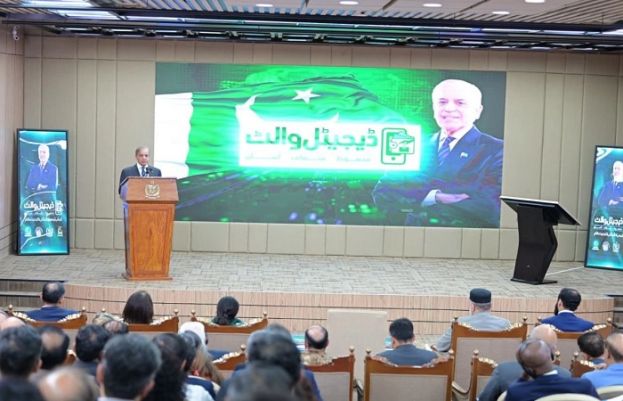Prime Minister Muhammad Shehbaz Sharif on Monday inaugurated 10 million digital wallets under the Benazir Income Support Programme (BISP), calling it a historic milestone for transparency, financial inclusion, and Pakistan’s transition to a cashless economy. The move, he said, will safeguard genuine recipients, streamline disbursements, and empower millions of low-income families with direct digital access to financial assistance. At a symbolic ceremony attended by federal ministers, BISP leadership, and international partners including GIZ, the prime minister praised the initiative as a “landmark decision” that not only strengthens poverty alleviation efforts but also brings Pakistan closer to global digital practices. “This system is blessed by the soul of Shaheed Mohtarma Benazir Bhutto, as it empowers beneficiaries with safe and transparent access to support,” he remarked. Sharif highlighted that 78 percent of relief during Ramazan had already been distributed through digital channels, proving the efficiency of cashless systems despite resistance from vested interests. He urged BISP to expand its impact by linking assistance to education and health conditions, ensuring that children of recipient families attend school and have access to healthcare. The digital wallet rollout will use beneficiaries’ CNICs and biometric verification to prevent fraud, with 10 million free SIM cards distributed in collaboration with Jazz/Mobilink. BISP Chairperson Senator Rubina Khalid hailed the launch as a continuation of Benazir Bhutto’s vision for women’s empowerment, stressing that linking support to women’s CNICs gives them recognition and inclusion in the national database. Calling the initiative “a pathway to social and economic empowerment,” Khalid said the programme would also include digital literacy training for women to ensure effective use of wallets. The prime minister concluded by paying tribute to partner institutions, stressing that Pakistan was not only disbursing aid but “raising an army of architects and workers to build the nation.”
PM Shehbaz launches 10 Million digital wallets for BISP beneficiaries, terms it leap towards cashless economy

